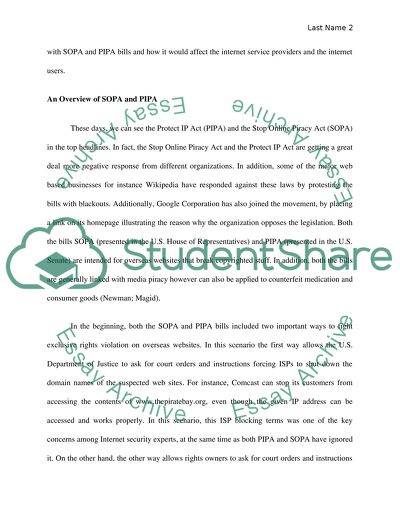Cite this document
(“Impact of SOPA and PIPA Bills Research Paper Example | Topics and Well Written Essays - 2500 words”, n.d.)
Impact of SOPA and PIPA Bills Research Paper Example | Topics and Well Written Essays - 2500 words. Retrieved from https://studentshare.org/media/1452363-should-goverment-be-aloud-to-regulate-information
Impact of SOPA and PIPA Bills Research Paper Example | Topics and Well Written Essays - 2500 words. Retrieved from https://studentshare.org/media/1452363-should-goverment-be-aloud-to-regulate-information
(Impact of SOPA and PIPA Bills Research Paper Example | Topics and Well Written Essays - 2500 Words)
Impact of SOPA and PIPA Bills Research Paper Example | Topics and Well Written Essays - 2500 Words. https://studentshare.org/media/1452363-should-goverment-be-aloud-to-regulate-information.
Impact of SOPA and PIPA Bills Research Paper Example | Topics and Well Written Essays - 2500 Words. https://studentshare.org/media/1452363-should-goverment-be-aloud-to-regulate-information.
“Impact of SOPA and PIPA Bills Research Paper Example | Topics and Well Written Essays - 2500 Words”, n.d. https://studentshare.org/media/1452363-should-goverment-be-aloud-to-regulate-information.


